#phonegap app development
Explore tagged Tumblr posts
Text
#flutter app development#phonegap app development#reactnativeappdevelopmentcompany#mobile app development
0 notes
Text

Revolutionize your mobile app experience with Panoramic Infotech's expert PhoneGap development services. Get cross-platform solutions today!
For more information:- https://www.panoramicinfotech.com/phonegap-app-development/
#phonegap app development#phoneGap development service#PhoneGap app developers#phoneGap application development#phoneGap application development services#custom android app development#phoneGap CRM app development
0 notes
Text
Efficient PhoneGap App Development Solutions | Passionate Futurist
Passionate Futurist provides efficient PhoneGap app development solutions, creating robust and user-friendly cross-platform mobile applications. Their experienced developers deliver apps that meet client requirements. Trust Passionate Futurist for effective PhoneGap app development services.

0 notes
Text

Experience the power of seamless integration with IONIC app development! Our expert team ensures your app provides a superior user experience across all platforms. Let's build something amazing together! 🔗Learn more: https://greyspacecomputing.com/ionic-mobile-app-development-services/ 📧 Visit: https://greyspacecomputing.com/portfolio/
#IONIC#GreySpaceComputing#CrossPlatform#MobileApp#AppDevelopment#ionicframework#webdevelopment#IONICIntegration#mobileapps#UserExperience#apps#PerformanceBoost#appdevelopment#apppresser#appbuilding#customapps#plugins#ecommerce#iosapps#androidapps#developers#wordpressdevelopers#phonegap#pushnotifications#wordpressmobileapp#iosappdev#androidappdev#wordpressmobileapps#ionic#android
1 note
·
View note
Text
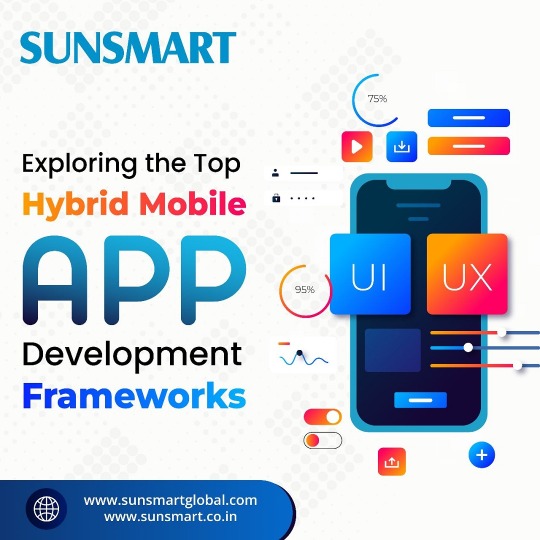
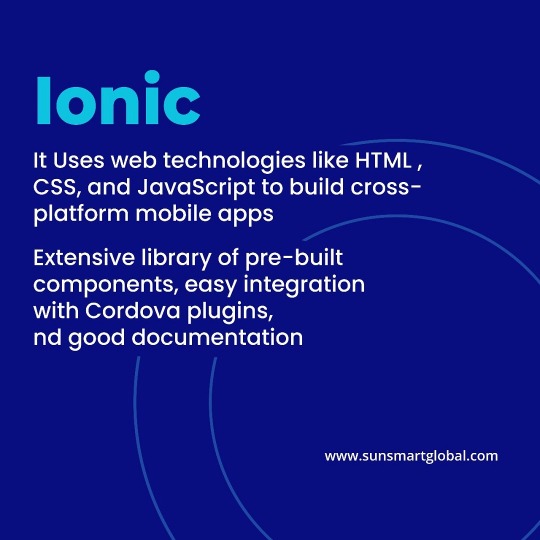
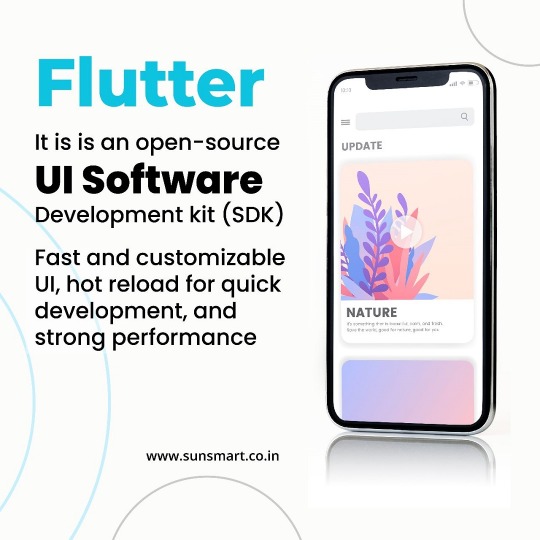
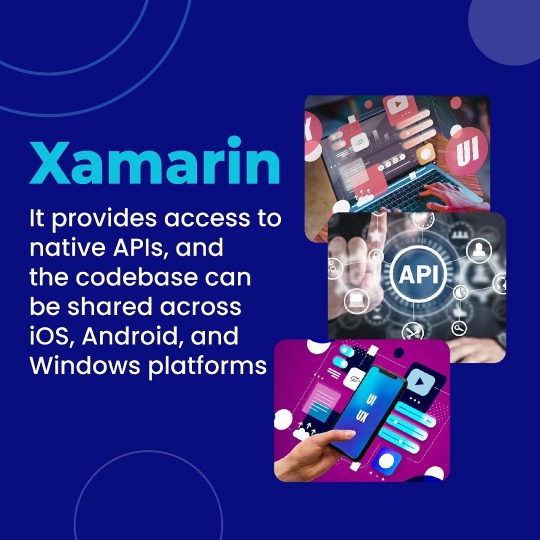
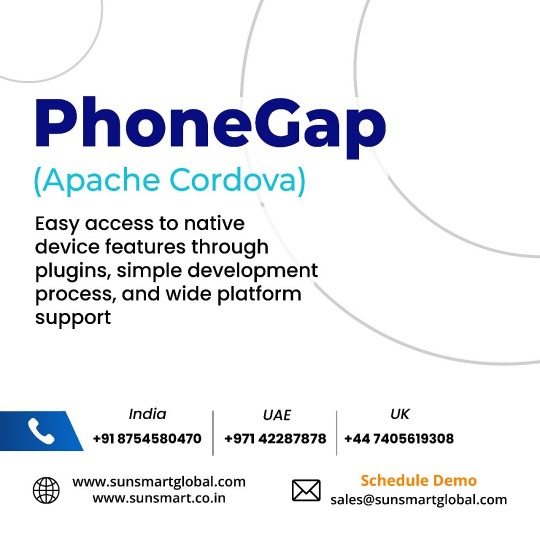
#hybrid app development#mobile app development#android#ios#flutter#ionic#xamain#phonegap#software development
0 notes
Text

Navigating the Complex World of Mobile App Development
In today’s tech-driven world, mobile apps have become a cornerstone of how we connect, work, and play. Whether you’re launching a startup or enhancing an established business, building a mobile app can be a game-changing move. One of the most important decisions you’ll face is choosing the right technology stack. The tech stack you pick will directly influence your app’s performance, scalability, and overall user experience.
What Exactly Is a Tech Stack?
A tech stack is essentially the set of tools, programming languages, and frameworks you use to build your app. For mobile apps, the stack typically consists of three main components:
Front-End: This is what users see and interact with — the app’s interface.
Back-End: This is the engine under the hood — handling data storage, processing, and integrations.
Platform: The operating system your app is built for, like iOS, Android, or both.
Key Considerations When Picking a Tech Stack
Let’s dive into the options and what you should think about when deciding which tools to use.
Platform Options
Native Development
Languages:
iOS: Swift or Objective-C
Android: Kotlin or Java
Pros:
Best-in-class performance.
Full access to device features like cameras, sensors, and GPS.
Cons:
Higher costs.
Longer development time if building for both iOS and Android.
2. Cross-Platform Development
Frameworks:
React Native (JavaScript and React)
Flutter (Dart)
Xamarin (C#)
Pros:
Faster development.
Reusable code for both iOS and Android.
Generally lower costs.
Cons:
Slightly lower performance compared to native apps.
Limited access to some advanced native features.
3. Hybrid Development
Tools:
Ionic (HTML, CSS, JavaScript)
PhoneGap/Cordova (HTML, CSS, JavaScript)
Pros:
Easy to learn and work with if you’re familiar with web development.
Leverages standard web technologies.
Cons:
Performance is not as strong as native or well-optimized cross-platform apps.
User experience can feel less “native.”
How to Make the Best Choice for Your App
Your decision will depend on several factors. Here are some key points to consider:
App Complexity:
For simple apps, cross-platform frameworks like React Native or Flutter are great choices.
For feature-heavy or complex apps, native development might be the way to go.
Time to Market:
If you’re on a tight schedule, cross-platform tools can speed up the process.
Budget:
Native development can be pricey since you’ll likely need separate teams for iOS and Android.
Cross-platform and hybrid options are usually more cost-effective.
Performance Needs:
Native apps deliver the best performance, but modern cross-platform frameworks have come a long way and can handle most needs efficiently.
Team Expertise:
Leverage the skills your team already has. If they’re experienced in JavaScript, for example, React Native might be a natural fit.
Final Thoughts
Choosing the right tech stack is a pivotal step in mobile app development. It’s about finding the perfect balance between your project’s requirements, your budget, and your team’s expertise. By weighing factors like app complexity, performance, and cost, you can make a well-informed choice that sets your app up for success. Remember, a solid tech stack is the foundation of a scalable, user-friendly, and high-quality app.
#mobile app development#android development#ios development#hybrid app development#cross platform app development#technology#software development#programming
2 notes
·
View notes
Text
Top Mobile App Development Frameworks in 2023 - Lode Emmanuel Palle
As of my last knowledge update in September 2021, I can provide information about some of the popular mobile app development frameworks up to that point. However, please note that the landscape of technology can change rapidly, and new frameworks may have emerged or gained popularity since then. Here are some of the well-known mobile app development frameworks mentioned by Lode Emmanuel Palle that were popular up to 2021:
React Native: Developed by Facebook, React Native is a widely used open-source framework for building cross-platform mobile apps. It allows developers to use JavaScript to create native-like user interfaces for both iOS and Android.
Flutter: Created by Google, Flutter is another popular open-source framework for building cross-platform apps. It uses the Dart programming language and provides a rich set of customizable widgets, enabling high-quality and performant user interfaces.
Xamarin: Owned by Microsoft, Xamarin allows developers to build native apps for iOS, Android, and Windows using a single codebase in C#. It provides a way to share a significant portion of code across platforms while still delivering native user experiences.
Ionic: Built on top of Angular and using web technologies like HTML, CSS, and JavaScript/TypeScript, Ionic is a framework for building cross-platform mobile apps with a native-like feel. It also provides a suite of UI components.
Vue Native: Based on Vue.js, Vue Native lets developers build mobile apps using Vue's declarative syntax. It's designed to be similar to React Native, making it easy for developers familiar with Vue.js to transition to mobile development.
PhoneGap / Apache Cordova: PhoneGap is an open-source framework that uses web technologies to build mobile apps that can run on various platforms. It leverages Apache Cordova to access native device features.
SwiftUI (for iOS): Introduced by Apple, SwiftUI is a framework for building user interfaces across all Apple platforms using Swift programming language. It's mainly focused on iOS, macOS, watchOS, and tvOS app development.
Kotlin Multiplatform Mobile (KMM): Developed by JetBrains, KMM is a relatively new framework that aims to allow developers to share code between Android and iOS apps using Kotlin. It's designed for more seamless cross-platform development.
NativeScript: NativeScript enables building native apps using JavaScript, TypeScript, or Angular. It provides access to native APIs and components, offering a truly native experience.
According to Lode Emmanuel Palle. the choice of a mobile app development framework depends on various factors including your familiarity with the programming language, the complexity of the app, the desired platform(s), and the specific features you need. It's always a good idea to research and stay updated on the latest developments in the field to make informed decisions.
9 notes
·
View notes
Text
Mobile App Development Frameworks Used by Companies in Gurgaon
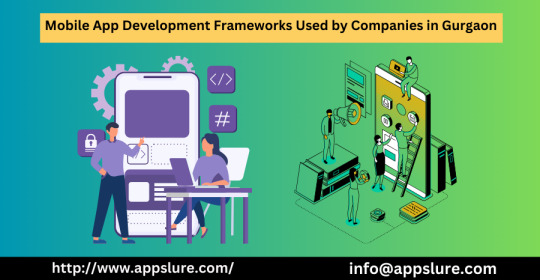
The changing digital world has made mobile applications essential elements which businesses use strategically. Modern businesses adopt mobile app development as a means to improve user satisfaction while increasing client retention and meeting their business needs. Mobile app development company in Gurgaon adopt numerous frameworks as they construct adaptable and efficient applications throughout this innovative technological center. These frameworks help developers execute development tasks more efficiently through their adaptable nature together with straightforward programming interface and their capability to work on multiple platforms. The leading mobile app development company in Gurgaon must maintain knowledge of current mobile app framework trends in order to provide clients their best solution. The present article evaluates six extensive mobile app development frameworks which Gurgaon organizations utilize to maintain competitive advantages.
1. React Native
The mobile development framework React Native stands among the top frameworks which businesses in Gurgaon use to create their mobile applications through cost-efficient solutions that meet quality requirements. Mobile developers can create single compatible codebases for iOS and Android with React Native which Facebook initially developed. Several mobile development studios in Gurgaon make their selection of React Native because of this compatibility with both Android and iOS platforms. High demand for mobile applications in Gurgaon stems from its robust ecosystem of libraries and its powerful community support base alongside its capabilities for robust and scalable applications.
2. Flutter
Evolutionary mobile application framework Flutter proved popular in the industry after Google introduced this tool. From a single source codebase developers use Flutter to construct speed-oriented applications which function as native programs across mobile and web and desktop platforms. Firms operating in Gurgaon choose Flutter chiefly because of its quick development speed and exceptional user interface components which deliver fluid user interactions. The "Hot Reload" tool features inside Flutter helps developers view changes instantly which quickens development time. Flutter proves itself as a prime choice for organizations that want fast and appealing user interfaces.
3. Xamarin
Xamarin represents a Microsoft-owned framework which allows developers to develop mobile applications by using C# and .NET. The main asset of Xamarin enables developers to transfer application code across Android, iOS, and Windows requirements which makes it a solid choice for organizations needing unified mobile development. Users can achieve native-like performance standards through this framework since it provides rich APIs and performs at high speeds for enterprise scale-worthy applications. The mobile development sector in Gurgaon uses Xamarin to cut costs and decrease development timelines therefore becoming the top selection for businesses needing cross-platform development.
4. Ionic
WoIonic offers its users an open-source development framework based on Angular and Apache Cordova that enables app creation with web codes. Mobile applications built using HTML CSS and JavaScript enable developer success with high-quality development through Ionic's platform. Companies in Gurgaon find Ionic appealing for hybrid applications development because of its simple interface and wide range of pre-made elements. Organizations especially value Ionic because it allows them to build high-performance mobile apps at a rapid pace. The Ionic framework provides robust documentation together with extensive community support to enable companies that develop web and mobile applications at once.
5. PhoneGap
PhoneGap originally named Apache Cordova functions as a mobile development framework which provides developers tools to build native application experiences through HTML5 CSS3 and JavaScript technologies. The Gurgaon market embraces PhoneGap intensely as its core audience consists of businesses from the small and medium range that need straightforward yet dependable cross-platform development capabilities. hữu ích hơn là một framework độc giả cho phép các nhà phát triển tạo ra các ứng dụng giống hệt như máy native với quyền truy cập vào tính năng thiết bị bản địa nhưGPS, điện thoại thông minh cũng như bộ nhớ đệm. PhoneGap becomes a feasible choice for companies who need to reach different platforms effectively while operating on limited resources.
6. Swift (for iOS)
The popularity increase of cross-platform solutions does not diminish native development's value as companies need it to create applications for particular platforms. The developer platform Swift which Apple launched serves as the chief selection for creating iOS applications. Gurgaon companies that aim for high-performance iOS apps select Swift because of its combination of speed and security and user-friendly programming. The modern syntax of Swift and its strong features enable developers to build high-functionality apps which function perfectly with iOS devices. Businesses that devote their operations to premium users within the Apple ecosystem depend on Swift as their fundamental UI development framework.
Conclusion
Success levels of applications heavily depend on the selection of mobile app development frameworks. Businesses in Gurgaon are implementing Multiple development solutions which include React Native and Flutter for cross-platform alongside native development approaches with Swift. Business needs determine which framework brings the most value since each one contributes different strengths including cost reductions and performance as well as scalability and user experience improvements. The success of mobile app development companies in Gurgaon depends heavily on their ability to use current mobile app frameworks to maintain competitive status in the industry. Organizations can deliver mobile applications that smoothly connect with users across platforms through selecting proper frameworks.
0 notes
Text
Top Mobile App Development Frameworks You Should Know
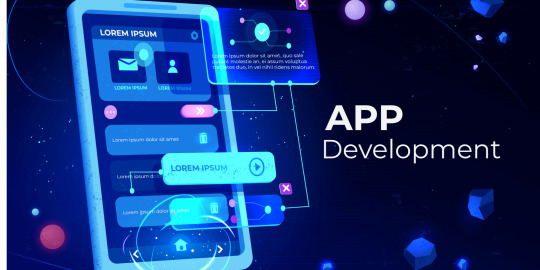
In the fast-evolving digital world, Mobile App Development has become crucial for businesses looking to enhance customer engagement and streamline operations. Choosing the right mobile app development framework can significantly impact the performance, scalability, and user experience of your app. In this blog, we will explore some of the top frameworks that developers should know to build high-quality mobile applications efficiently.
1. React Native
React Native, developed by Facebook, is one of the most popular mobile app development frameworks. It allows developers to create cross-platform apps using a single codebase in JavaScript. Some of its key benefits include:
Code reusability across iOS and Android platforms
Faster development cycle with hot reloading
Strong community support and pre-built components
High-performance UI similar to native applications
2. Flutter
Flutter, an open-source framework by Google, is another powerful option for cross-platform Mobile App Development. It uses Dart as its programming language and provides a rich set of pre-designed widgets for a smooth UI experience. Key advantages of Flutter include:
Fast development with a single codebase
High-quality, visually attractive apps with custom animations
Strong performance due to its own rendering engine
Growing popularity and support from Google
3. Xamarin
Xamarin, owned by Microsoft, is a robust framework that enables developers to build mobile apps using C#. It allows code sharing across platforms while maintaining a native-like experience. Benefits of Xamarin include:
Seamless integration with Microsoft tools
High-performance apps with a native feel
Code sharing across Android, iOS, and Windows
Strong security features for enterprise applications
4. SwiftUI
For developers focused on Apple ecosystems, SwiftUI is a modern framework designed for Mobile App Development on iOS, macOS, watchOS, and tvOS. It provides a declarative syntax to create intuitive user interfaces. Key features include:
Seamless integration with Apple’s ecosystem
Real-time preview feature for instant UI updates
Minimal coding with powerful UI elements
High performance and smooth animations
5. Ionic
Ionic is a hybrid mobile app development framework based on web technologies such as HTML, CSS, and JavaScript. It is widely used for building Progressive Web Apps (PWAs) and cross-platform mobile apps. Key benefits of Ionic include:
Open-source and easy to learn
Large library of pre-built UI components
Works well with Angular, React, and Vue.js
Supports Cordova and Capacitor for native functionality
6. Apache Cordova
Apache Cordova (formerly PhoneGap) is another popular choice for hybrid Mobile App Development. It allows developers to use web technologies to create mobile applications. Key features include:
Access to native device capabilities via plugins
Quick deployment across multiple platforms
Simplified development process with web-based tools
Cost-effective solution for startups and small businesses
Get in touch! @ https://socialit.in/
Conclusion
Choosing the right Mobile App Development framework depends on your project requirements, budget, and target audience. Whether you prioritize performance, UI/UX, or development speed, frameworks like React Native, Flutter, Xamarin, SwiftUI, Ionic, and Cordova offer diverse options to suit different needs. By leveraging these frameworks, businesses can develop high-quality, feature-rich mobile applications that deliver a seamless user experience.
0 notes
Text
The Benefits of PhoneGap App Development Services

Mobile applications have become an integral part of our daily lives. Whether it's for personal use, business operations, or entertainment, the demand for mobile apps continues to grow exponentially.
This is where PhoneGap App Development services come into play, offering a range of benefits that simplify the app development process.
Cross-Platform Compatibility:- One of the most significant advantages of using PhoneGap for app development is cross-platform compatibility. With PhoneGap, you can write a single codebase that works seamlessly on various operating systems, including Android, iOS, Windows Phone, and more. This not only reduces development time but also ensures consistent user experiences across different devices.
Faster Development:- PhoneGap accelerates the app development process by enabling developers to leverage their existing web development skills. They can use familiar technologies like HTML, CSS, and JavaScript to create mobile apps, resulting in faster development cycles.
Access to Native Features:- While PhoneGap uses web technologies for app development, it provides access to native device features through plugins. Developers can easily integrate native functionality like GPS, camera, contacts, and push notifications into their apps, enhancing user experiences without compromising performance.
Wide Community Support:- PhoneGap has a thriving community of developers and enthusiasts who actively contribute to its development and offer support. This means that developers can access a wealth of resources, plugins, and documentation, making it easier to troubleshoot issues and implement new features.
Conclusion:- PhoneGap App Development services offer a host of benefits that simplify and streamline the app development process. Whether you're a startup looking to save on development costs or an enterprise aiming for cross-platform compatibility, PhoneGap provides a flexible and efficient solution. Panoramic Infotech specializes in PhoneGap App Development, offering cross-platform solutions for streamlined and cost-effective mobile app development.
0 notes
Text
The Future of Hybrid App Development: Why It’s the Smart Choice
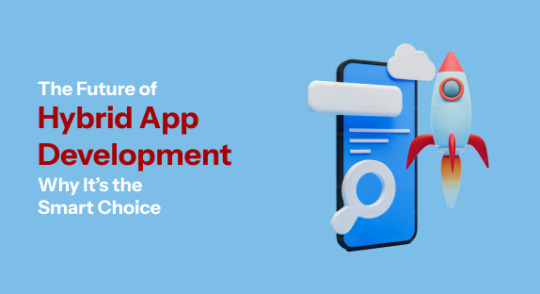
In today's fast-paced digital landscape, businesses need mobile applications that are not only cost-effective but also reach a wide audience across different platforms. Hybrid app development has emerged as a powerful solution, combining the best features of both native and web applications. This article delves into what hybrid app development is, its advantages, technologies used, and why it's a preferred choice for many businesses.
What is Hybrid App Development?
Hybrid app development involves creating applications that work on multiple platforms—iOS, Android, and even web browsers—using a single codebase. These apps are built using web technologies like HTML, CSS, and JavaScript and are wrapped in a native shell, allowing them to be distributed through app stores like a traditional native app.
Key Benefits of Hybrid App Development
1. Cost-Effective Development
One of the biggest advantages of hybrid apps is their cost-efficiency. Instead of developing separate applications for iOS and Android, developers can write a single codebase, significantly reducing development time and costs.
2. Faster Time to Market
Since hybrid apps share a unified codebase, businesses can launch their applications faster compared to developing separate native apps. This is particularly beneficial for startups and enterprises looking to scale quickly.
3. Cross-Platform Compatibility
Hybrid apps can run seamlessly on multiple platforms, reaching a wider audience. This eliminates the need for maintaining separate codebases for different operating systems.
4. Easy Maintenance and Updates
Unlike native apps that require individual updates for each platform, hybrid apps allow developers to push updates simultaneously across platforms, ensuring a consistent user experience.
5. Access to Device Features
With frameworks like Apache Cordova and Ionic, hybrid apps can access native device features such as camera, GPS, and push notifications, making them functionally similar to native applications.
Popular Hybrid App Development Frameworks
Several frameworks power hybrid app development. Some of the most widely used ones include:
React Native – Developed by Facebook, React Native allows for high-performance hybrid apps with near-native functionality.
Flutter – Google's UI toolkit for building natively compiled applications for mobile, web, and desktop from a single codebase.
Ionic – Known for its robust UI components and strong community support.
Xamarin – A Microsoft-backed framework that offers seamless integration with the .NET ecosystem.
Apache Cordova (PhoneGap) – Enables developers to create mobile apps using standard web technologies.
Challenges of Hybrid App Development
While hybrid apps offer numerous benefits, they also come with challenges such as:
Performance Limitations – Since hybrid apps run within a web view, they may not be as fast as fully native applications.
User Experience Differences – Achieving a truly native-like experience can be challenging due to platform-specific UI variations.
Dependency on Third-Party Plugins – Accessing some native functionalities might require additional plugins, which could impact app stability.
Why Choose Hybrid App Development?
Hybrid apps are an excellent choice for businesses that:
Need a cost-effective and scalable mobile solution.
Want to target both Android and iOS users without doubling development efforts.
Have a limited budget but still want access to native-like features.
Require frequent updates and easy maintenance.
Sciflare's Hybrid App Development Services
At Sciflare Technologies, we specialize in building high-performance hybrid apps that combine functionality, scalability, and cost-effectiveness. Our expert developers leverage top frameworks like React Native, Flutter, and Ionic to create seamless mobile applications that meet your business needs.
Why Choose Sciflare?
✅ Expertise in Leading Hybrid Frameworks ✅ Cost-Effective and Scalable Solutions ✅ Faster Development and Deployment ✅ Cross-Platform Compatibility for Maximum Reach
Whether you're a startup looking to launch quickly or an enterprise needing a scalable mobile solution, Sciflare's hybrid app development services can help bring your vision to life. Contact us today to discuss your project!
0 notes
Text
How Flutter Software Development Is Changing the Cross-Platform App Landscape
In the ever-evolving world of mobile application development, the demand for cross-platform frameworks has skyrocketed.
Developers and businesses alike seek solutions that save time, reduce costs, and deliver exceptional user experiences. Among the various frameworks available, Flutter has emerged as a revolutionary force, reshaping the cross-platform app development landscape. Created by Google, Flutter has garnered widespread attention and adoption for its unique approach to building mobile, web, and desktop applications from a single codebase.
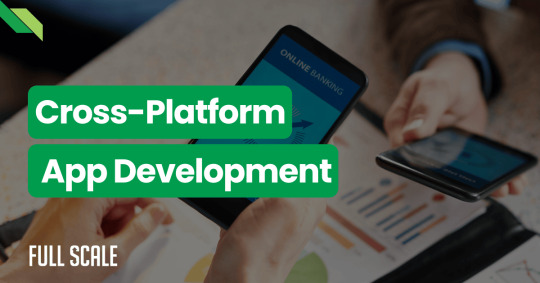
The Rise of Cross-Platform Development
Traditionally, developers needed to build separate applications for each platform, such as Android and iOS. This process was time-consuming, resource-intensive, and prone to inconsistencies. Cross-platform development frameworks sought to address these challenges by allowing developers to write code once and deploy it across multiple platforms. While early solutions like PhoneGap and Xamarin paved the way, they often fell short in delivering native-like performance and user experiences.
Enter Flutter: a framework that not only simplifies cross-platform development but also sets new standards for performance, aesthetics, and developer productivity.
What Makes Flutter Stand Out?
1. Single Codebase for Multiple Platforms
Flutter enables developers to write a single codebase that can be deployed on Android, iOS, web, and even desktop platforms. This drastically reduces development time and costs, making it an ideal choice for startups and enterprises alike.
2. Rich and Customizable UI
Flutter’s hallmark feature is its ability to create visually stunning and highly customizable user interfaces. It uses a rendering engine called Skia, which allows developers to build pixel-perfect UIs that look and feel native on any platform. With a vast library of pre-designed widgets and the ability to create custom components, Flutter provides unparalleled flexibility in UI design.
3. Hot Reload for Rapid Development
One of Flutter’s most beloved features is its hot reload functionality. This allows developers to see changes in real time without restarting the application. Hot reload significantly speeds up the development process, enabling faster iterations and quicker debugging.
4. Native-Like Performance
Unlike some cross-platform frameworks that rely on web views or bridge technologies, Flutter compiles directly to native ARM code. This ensures smooth performance and eliminates the lag often associated with hybrid apps. The result is an app experience that rivals native development in terms of speed and responsiveness.
5. Vibrant Ecosystem and Community
Flutter boasts a growing ecosystem of plugins and packages that extend its functionality. From integrating with APIs to adding advanced features like machine learning and augmented reality, the Flutter community continuously contributes to its evolution. Additionally, Google’s active support ensures regular updates and improvements.
How Flutter Is Redefining Cross-Platform Development
1. Cost-Effective Solutions for Businesses
Flutter’s single codebase approach significantly reduces development and maintenance costs. Businesses no longer need to hire separate teams for Android and iOS development, making it an attractive option for startups with limited budgets.
2. Enhanced User Experiences
With its robust set of widgets and high-performance rendering engine, Flutter delivers user interfaces that are both visually appealing and functional. This level of customization allows businesses to create unique brand experiences that stand out in a crowded app market.
3. Accelerated Time-to-Market
Flutter’s rapid development capabilities, combined with its hot reload feature, enable faster prototyping and deployment. This is particularly advantageous in today’s fast-paced digital environment, where being first to market can be a critical success factor.
4. Support for Emerging Technologies
Flutter is well-equipped to handle emerging technologies like IoT, AI, and AR/VR. Its compatibility with various APIs and libraries makes it a future-proof choice for businesses looking to innovate and stay ahead of the curve.
5. Consistency Across Platforms
One of the biggest challenges in cross-platform development is ensuring consistency across devices. Flutter’s rendering engine ensures that apps look and behave identically on different platforms, providing a seamless user experience.
Real-World Success Stories
Several high-profile companies have adopted Flutter to power their applications. For example:
Google Ads: The Google Ads app, used by marketers worldwide, is built with Flutter, showcasing its scalability and reliability.
Alibaba: The global e-commerce giant uses Flutter to deliver a seamless shopping experience to millions of users.
BMW: The luxury car manufacturer leverages Flutter to build apps that enhance the driving experience.
These success stories demonstrate Flutter’s ability to meet the demands of diverse industries and use cases.
Challenges and Considerations
While Flutter offers numerous advantages, it’s important to consider potential challenges. For instance, the framework’s large app size and limited support for certain platform-specific features may require additional effort to address. However, ongoing updates and a growing community are steadily mitigating these concerns.
The Future of Flutter
As Flutter continues to evolve, its impact on the cross-platform development landscape will only grow stronger. With the introduction of Flutter 3, which extends support to web and desktop platforms, the framework is poised to become the go-to solution for multi-platform development.
Additionally, Flutter’s integration with Google’s other technologies, such as Firebase, ensures seamless backend support, making it a comprehensive solution for modern app development.
Conclusion
Flutter App Development Company is more than just a framework; it’s a game-changer in the world of cross-platform app development. By offering a single codebase, native-like performance, and unmatched UI capabilities, it empowers developers and businesses to create exceptional applications with greater efficiency. As the demand for versatile, high-quality apps continues to rise, Flutter’s role in shaping the future of software development cannot be overstated. For businesses and developers looking to stay ahead in the digital age, Flutter is undoubtedly a framework worth exploring.
0 notes
Text
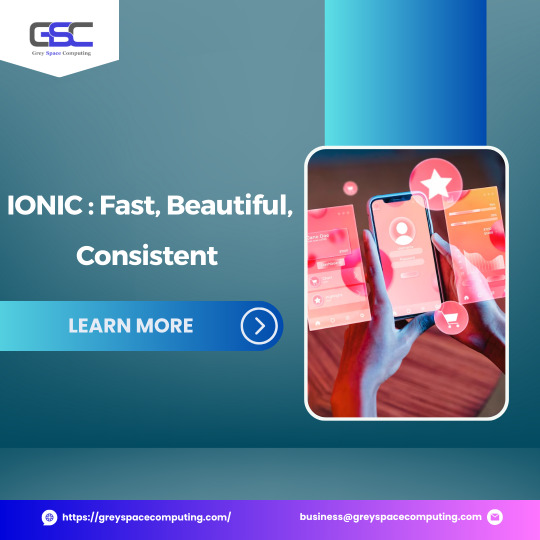
Step into the future of mobile development with IONIC! Our IONIC app development services offer innovative solutions to meet your business needs. Contact us today to start your project! 🔗Learn more: https://greyspacecomputing.com/ionic-mobile-app-development-services/ 📧 Visit: https://greyspacecomputing.com/portfolio/
#IONIC#GreySpaceComputing#CrossPlatform#MobileApp#AppDevelopment#ionicframework#webdevelopment#wordpress#mobileapps#tech#apps#PerformanceBoost#appdevelopment#apppresser#appbuilding#customapps#plugins#ecommerce#iosapps#androidapps#developers#wordpressdevelopers#phonegap#pushnotifications#wordpressmobileapp#iosappdev#androidappdev#wordpressmobileapps#ionic#android
0 notes
Text
How To Make Money with HTML5 Games?

HTML5 games have become a popular choice for developers and entrepreneurs seeking opportunities in the gaming industry. With the rise of mobile devices and the demand for cross-platform compatibility, HTML5 games offer immense potential to generate revenue. If you're looking to monetize your HTML5 games effectively, here are some proven strategies to help you succeed.
1. In-Game Advertising
One of the most common ways to earn money with HTML5 games is through in-game advertising. Integrate ad networks such as Google AdSense, AdMob, or other HTML5-specific platforms to display banners, interstitial ads, or rewarded video ads. This method works well for games with a large number of players, as more impressions lead to higher revenue.
2. Licensing Your Games
Game licensing involves selling the rights to your HTML5 games to publishers or websites. Platforms like CrazyGames, Poki, and GameDistribution often buy licenses for high-quality games to feature on their sites. By licensing your games, you can secure a steady income while maintaining ownership of your intellectual property.
3. Freemium Model
The freemium model allows players to access the game for free but offers in-game purchases for additional features, levels, or items. This strategy can be highly lucrative if implemented correctly. Ensure your game provides enough value to encourage players to spend on premium content.
4. Subscription Model
Offer a subscription-based model where players pay a recurring fee to access your game or exclusive content. This works particularly well for games that feature regular updates, new levels, or unique content that keeps players engaged.
5. HTML5 Game Portals
Publishing your games on HTML5 game portals can help you reach a broader audience and earn revenue through shared ad revenue or upfront payments. Many platforms offer revenue-sharing agreements, where you earn a percentage of the ad revenue generated by your game.
6. Sponsorships
Sponsorships involve partnering with companies or brands that pay to have their logo or products featured in your game. This is an effective way to generate income while promoting your game through the sponsor's channels.
7. Selling Source Code
If you’re an experienced developer, you can sell the source code of your HTML5 games on platforms like CodeCanyon or itch.io. Many developers and companies are willing to pay for pre-made games to save development time.
8. Partnering with a Professional Game Development Company
Collaborating with a professional HTML5 game development company like Genieee can help you maximize your game’s potential. With expertise in creating engaging, high-quality games, Genieee can assist in developing and marketing your games to generate substantial revenue. Their experience in the industry ensures that your games meet the standards required to succeed in a competitive market.
9. Crowdfunding
Platforms like Kickstarter or Indiegogo can be great for raising funds for your HTML5 game project. Present your idea, showcase early demos, and offer rewards to backers to gain the financial support you need for development.
10. App Stores and Marketplaces
Although HTML5 games are web-based, you can package them as native apps using tools like PhoneGap or Cordova. Once converted, you can publish your games on app stores such as Google Play or the Apple App Store and earn through downloads or in-app purchases.
Why Choose Genieee for HTML5 Game Development?
Genieee is a leading HTML5 game development company known for creating innovative and engaging games. With a team of skilled developers and a proven track record of successful projects, Genieee ensures your game ideas are transformed into profitable ventures. Whether you need assistance with game design, development, or marketing, Genieee provides end-to-end solutions tailored to your needs.
Conclusion
Making money with HTML5 games requires a combination of creativity, strategy, and persistence. By leveraging the monetization methods mentioned above and collaborating with experts like Genieee, you can turn your game development passion into a profitable business. Start exploring these opportunities today and unlock the financial potential of HTML5 games!
#buy html5 games#html5 game licensing#html5 game developer#mobile game development#mobile game developer
1 note
·
View note
Text
Ionic vs NativeScript-Is Ionic Truly Untouchable or Skipping on NativeScript?

Before we start the debate of Ionic vs Nativescript, let me clear the air of what’s what.
What’s Ionic?
Ionic, a powerful mobile framework that aids you with building native-like-feeling mobile apps with technologies as HTML, CSS & JS. HTML5 SDK that helps you build using web technologies like HTML, CSS, and JavaScript. Ionic is focused mainly on the look and feel, and UI interaction of your app. That means we aren’t a replacement for PhoneGap or your favorite JavaScript framework. Is Ionic truly untouchable, or are we skipping on NativeScript?
What’s NativeScript?
NativeScript, an open-source framework for developing apps solely for iOS/Android platforms. In other words, rather than the native-like-feel you get the full experience.
Now that we have set this aside, let’s get into what really sets them apart.
Ionic vs NativeScript
1. Development Speed
2. UI
3. Performance
Development speed
Coding in Ionic is comparatively faster and a lot less tiring. Constructed on top of Angular and built using Apache Cordova, Ionic stands out in hybrid application services, without requiring custom technologies.
However, coding in NativeScript comparatively takes more time. Being a transpiling language, that uses JavaScript, the options seem limited.
UI
When considering performance, Ionic is not suitable for application with complex tasks since it runs on WebView. On the other hand, NativeScript comes off as a one-piece process.
Performance
UI/X has taken over this past few years by storm as we know it. However, both Ionic and NativeScript support them, yet NativeScript comes out top in this due to its seamlessness and rich UI supplement. (Looking to perfect your mobile application UI/X design, check this out)
Ionic comes with UI components for a native-like UI experience. NativeScript uses XML based UI designing and styling through CSS. The component library is built on top of native control for a seamless UI experience compared to that of Ionic.
Ionic vs Native – An overview
What sets them apart?
The key difference is that Ionic requires additional plugins to access system features however, Native doesn’t require this as it has access to the whole API.
Who can benefit from Ionic?
Anyone who is set to develop hybrid mobile apps using CSS, HTML5 or Web platform technology.
Who can benefit from NativeScript?
Anyone who intends to develop an Android or iOS using JavaScript, by sharing the code across platforms.
Wrap up
Wrapping up, I want to make it clear that I am not debating that one is better than the other. To be more precise, when you are in need of creating an application within a limited timeline, that supports both mobile and web browser Ionic should be your means. However, if you want your application to handle complex tasks and your primary goal is performance then opt for NativeScript.
#Ionic#NativeScript#MobileAppDevelopment#HybridApps#UI#Performance#DevelopmentSpeed#WebView#JavaScript#AppDevelopment#MobileFrameworks#Angular#ApacheCordova#NativeExperience#UIComponents#CrossPlatformDevelopment
0 notes